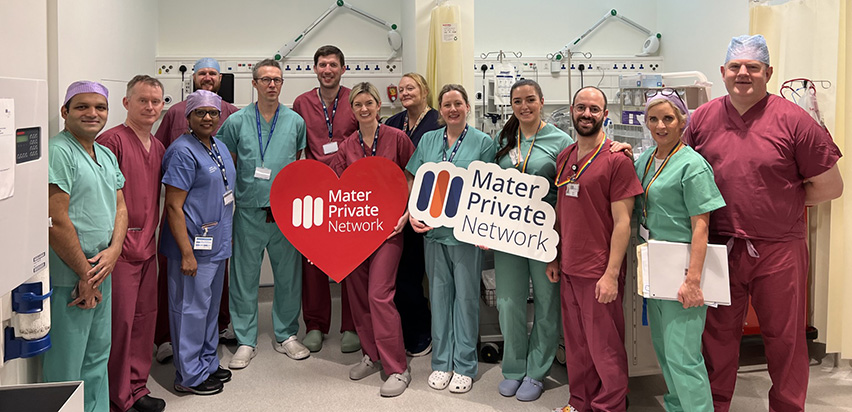Mater Private Network Reminds the Public of Associated Risks Connected to AF to Mark World Stroke Day
Atrial Fibrillation is the cause of one in five strokes
To mark World Stroke Day on 29th October, 2021, Mater Private Network has warned of the associated risk of Atrial Fibrillation.
Atrial Fibrillation, also known as A Fib or AF is the most common form of arrhythmia (an abnormal heartbeat which is continuously irregular and without pattern). The condition can affect any adult, although it becomes more common with age and among those with underlying heart disease or high blood pressure. It can also be caused by other conditions including an obstructive sleep apnoea, overactive thyroid gland, lung infections, a blood clot in the lung (pulmonary embolism) or the use of addictive substances like alcohol, cocaine, and tobacco. 1 in 4 people over the age of 50 are at risk of developing atrial fibrillation.
Speaking about the importance of early detection, Prof. Gábor Széplaki, Head of Cardiac Electrophysiology at Mater Private Network, Dublin and Clinical Lead for the Mater Private’s Atrial Fibrillation Institute, said “Within one year of diagnosis, 20% of patients progress from intermittent to persistent atrial fibrillation. AF is an extremely progressive disease and as it becomes more advanced, it becomes harder to treat as the heart could become structurally altered. Early diagnosis is very important and as AF causes one in five strokes, we are taking the opportunity of World Stroke Day to remind people of the seriousness of AF and stress early detection.”
Normally, the heart muscle pumps blood throughout the body. The heart is made up of four chambers: the two upper chambers are called the left and right atria, and the two lower chambers are called the left and right ventricles. When beating normally, its muscle walls contract to force blood out of the heart and around the body. They then relax so the heart can fill with blood again. This action is controlled by small electrical impulses and this process is repeated every time the heart beats.
When atrial fibrillation occurs, the heart beats in a disorganised and irregular way. The normal regular rhythmic activity of 60-100 beats per minute within the upper chambers or atria is replaced by chaotic irregular activity that can exceed well over 100 beats a minute. This leads to an irregular and usually fast pulse rate which may cause palpitations and congestion of the lungs. While it is not immediately life-threatening, the heart is no longer contracting in a normal way, and this can lead to a range of risks and complications that include stroke.
Established in 2020, Mater Private Network’s Atrial Fibrillation Institute provides access for patients to advanced therapies and multidisciplinary care for the treatment of AF from Ireland’s largest team of AF specialist consultants. Patients of the Institute benefit from a direct access to an arrhythmia nurse specialist, who plays an essential role in their individual therapy. Working in close collaboration with patients and their GPs, the Atrial Fibrillation Institute also enables patients to benefit from participation in clinical trials, and the expertise of specialists who treat approximately 40% of Ireland’s atrial fibrillation patients each year.









